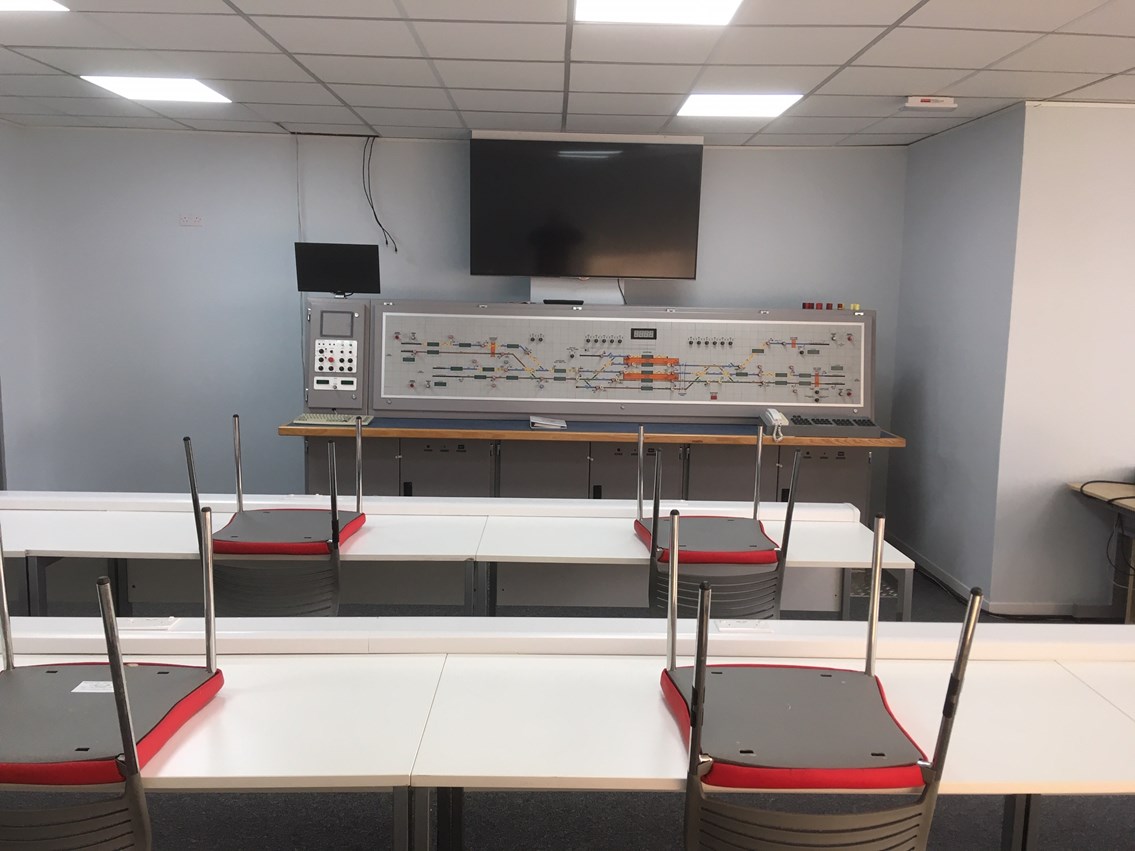Monday 20 Apr 2020
New training centre for railway signallers opens after just four weeks in Wales
- Region & Route:
- Wales & Western: Wales & Borders
Network Rail has taken just four weeks to transform an old depot in Newport, south Wales, into a state-of-the-art training centre to ensure it has enough skilled railway signallers across Wales and the west throughout the coronavirus crisis.
The railway is crucial in enabling key workers, such as NHS staff, to continue travelling to work and transports vital food and medical supplies across the country via freight services.
Signallers play an essential role in keeping trains moving but require specialist training to allow them to do the job safely and efficiently.
Network Rail recently appealed for retired signallers, or those who have moved to other careers in the railway industry, to volunteer to provide cover at signal boxes and control centres if some current signallers fall ill or need to self-isolate during the Covid-19 outbreak.
More than 200 signallers across Wales and the west responded to this call to arms.
The new signalling training centre in Newport will now be used to train new recruits as well as those returning to signalling on the national railway.
A little over a month ago the rooms at the Crindau depot in Newport were mothballed former testing workshops and meeting rooms but have now been converted into a temporary training facility that enables former signallers to refresh their training and get back to work on Britain’s railways.
Mark Langman, Network Rail’s managing director for Wales and Western, said:
“It is a remarkable achievement that this fully functioning training suite for signallers has been completed in less than a month.
“Under normal circumstances we have enough signallers to keep trains running whatever happens, but these are not normal circumstances and without fully trained signallers it is possible that parts of the network would have to shut.
“I am delighted with the response from former signallers who are willing to return to the railway. Putting the right training and facilities in place means that we can get them back up to speed to help us keep moving essential freight goods, and passengers whose journeys are essential."
Contact information
Passengers / community members
Network Rail national helpline
03457 11 41 41
Latest travel advice
Please visit National Rail Enquiries
Journalists
Steven Crane-Jenkins
Media Relations Manager
Network Rail (Wales and Borders)
07732 643228
Steven.Crane-Jenkins@NetworkRail.co.uk
About Network Rail
We own, operate and develop Britain's railway infrastructure; that's 20,000 miles of track, 30,000 bridges, tunnels and viaducts and the thousands of signals, level crossings and stations. We run 20 of the UK's largest stations while all the others, over 2,500, are run by the country's train operating companies.
Usually, there are almost five million journeys made in the UK and over 600 freight trains run on the network. People depend on Britain's railway for their daily commute, to visit friends and loved ones and to get them home safe every day. Our role is to deliver a safe and reliable railway, so we carefully manage and deliver thousands of projects every year that form part of the multi-billion pound Railway Upgrade Plan, to grow and expand the nation's railway network to respond to the tremendous growth and demand the railway has experienced - a doubling of passenger journeys over the past 20 years.
Follow us on Twitter: @networkrail
Visit our online newsroom: www.networkrailmediacentre.co.uk

